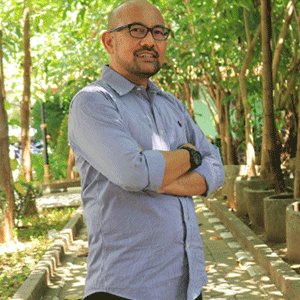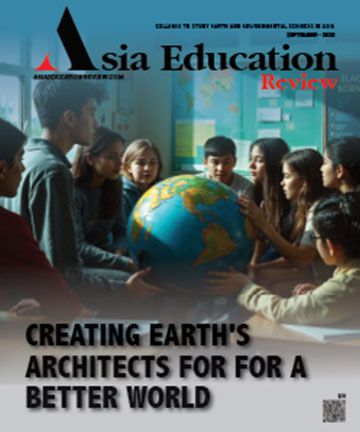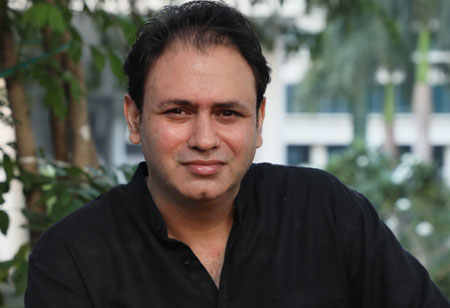State Islamic University Sunan Ampel Surabaya: Reimagining Education In Indonesia By Combining Education With Islamic Sciences

Prof. Akh Muzakki
Rector
The education sector is experiencing rapid growth, with a CAGR of 10.48 percent and an expected revenue of 40.45 million dollars in 2029. Education styles and systems are subject to dynamic changes, and many new methodologies are being implemented to improve student education. Islamic universities offer a distinct framework while maintaining a standardized education system. Islamic studies are an integral part of these institutions, and this segment has developed a reputation worldwide.
With its strong vision, State Islamic University Sunan Ampel Surabaya (UINSA) is committed to and excels in serving students with integrated and advanced education infrastructure. The university's passion for an excellent education system and international recognition drives it to provide a better education for society. Here, UINSA has created a unique branding by integrating social and natural science subjects with Islamic sciences and reimagining the mode of education. By doing so, UINSA has become one of the prominent Islamic universities in the region and is top-ranked in Indonesia.
UINSA is located in the center of Surabaya, East Java, and is one of the oldest Islamic universities in Indonesia. It has been officially accredited as excellent in 2019. “In the learning system, we offer a range of study program choices that are nationally accredited as well as adapting international standards in the implementation of education and management of higher education”, shares the Rector, Prof Akh. Muzakki, M.Ag, Grad.Dip.SEA, M.Phil, Ph.D.
Focus on Community Engagement
Among the distinctive features of this university is the emphasis on community engagement. UINSA has a long community-related history, dating back to when the grassroots community initiated its establishment. In addition, the university remains committed to being a community-engaging university with various approaches like participatory Action Research (PAR) and Asset-based community development (ABCD). In addition to having a community engagement program for students, in which students work directly with local communities to address social, economic, and environmental issues, there are also works by its faculty members.
Furthermore, the university collaborates with local governments, religious leaders, and NGOs to even advance their position as the center for university-community engagement. UINSA has also become the hub of K4C (Knowledge for Change), working with UNESCO.
The spirit aligns with Islamic teachings, which mandate that knowledge must benefit humanity. UINSA emphasizes values like social justice, charity, and compassion. In return, the students and lecturers also benefit from field-based learning experiences through practical application. The university's efforts foster mutual growth and cooperation with society.
Educational Excellence
UINSA, as a top-ranked Islamic university in Indonesia, currently offers a wide range of undergraduate, master's, and doctoral programs. One of the unique aspects is the blend of natural, social, and Islamic sciences. Many prominent professors of this institution have immense experience in Islamic studies and can find the links between modern-day subjects and Islamic sciences and studies. For example, general science and technology are taught anywhere in the world, but this institution has combined science and technology with Islamic sciences and created a distinguished curriculum for students. There are more than 750 faculty members at UINSA, among whom many have immense experience in Islamic sciences and are renowned in their teaching areas.
The university is committed to producing competent & competitive graduates who excel in various fields. It emphasizes quality education supported by national education standards & fosters a robust research culture
The institution integrates transdisciplinary approaches in its curriculum, enriching students' academic experiences and research. The university is committed to producing competent and competitive graduates who excel in various fields. It emphasizes quality education supported by national standards and fosters a robust research culture. UINSA also engages in community service, providing training and consultation to address societal issues. “Through our dedication to academic excellence and community engagement, we aim to become a center of excellence in Islamic studies, contributing to national and international academic communities”, states the Rector.
The Road Ahead
Since its inception in 1961, the institution has gained significant trust and recognition as an Islamic institution. It has made serious efforts to organize multidisciplinary Islamic sciences education and superior and competitive science and technology. UINSA has also developed multidisciplinary Islamic sciences research as well as science and technology relevant to the needs of society. It has also established a research-based religious community empowerment pattern that has successfully set it apart as an educational institution. Looking ahead, it wants to continue the good work, build more partnerships with global institutions, and give students international exposure. “We want to establish more international collaborations and send students and faculty members to other universities so that they can get a first-hand experience of the modern world that can be beneficial for their future”, concludes the Rector.
🍪 Do you like Cookies?
We use cookies to ensure you get the best experience on our website. Read more...



